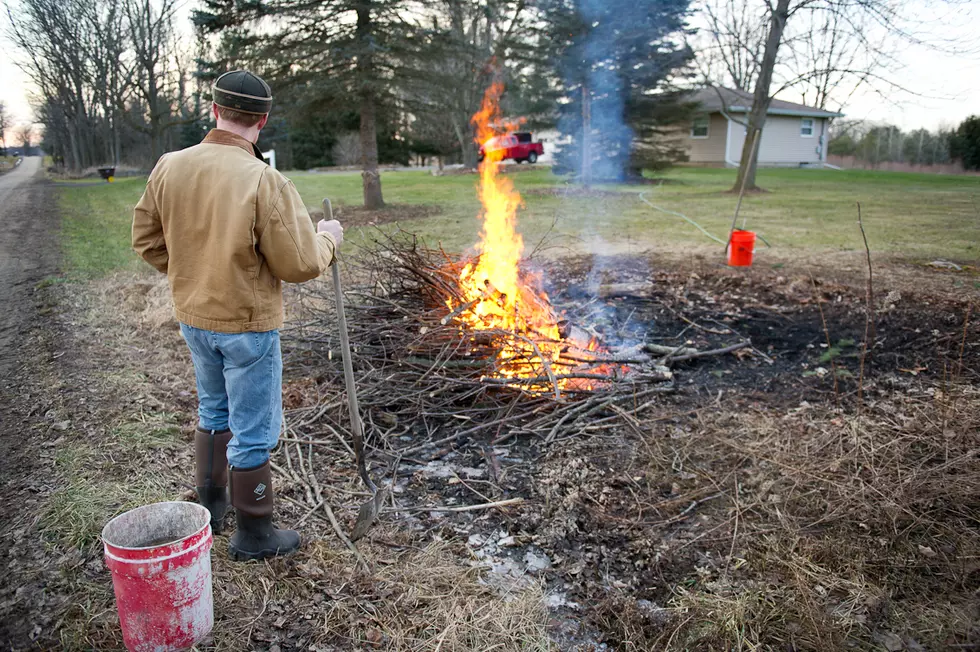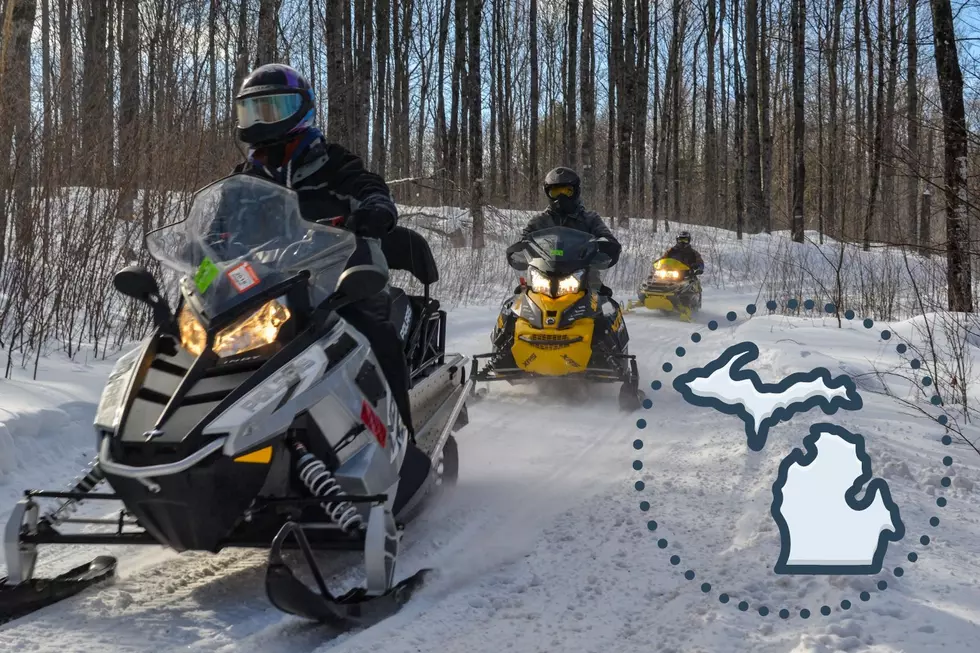
DNR Wildfire Prevention Week Reminder
"One ember landing in some dead grass is enough to start a wildfire” says a fire prevention specialist from the Michigan DNR. The department is using the state’s annual observance of Wildfire Prevention Week (4/17 - 4/23) to remind us about the dangers of wildfires. Debris burning has been the number one cause of wildfires in Michigan according to the DNR. Here's a bulletin and tips for safeguarding your home and property from wildfire risk.
Michigan Fire Season Builds During Wildfire Prevention Week
Be safe when burning yard debris. Most of Michigan’s wildfires occur in April, May and June. According to the Department of Natural Resources, which is responsible for wildland fire protection on 30 million acres of state and private land, April is when wildfires start becoming a problem. The DNR is using the state’s annual observance of Wildfire Prevention Week, April 17-23, to remind the public about the dangers of wildfires.
Members of the Michigan Interagency Wildland Fire Protection Association (including the DNR) agreed this year's Wildfire Prevention Week again would be observed in the third week of April.
“Wildfire danger is typically highest during the spring,” said Bryce Avery, acting DNR fire prevention specialist. “The dead grass and leaves from last year dry very quickly as days become longer, temperatures begin to rise, and humidity levels are often at their lowest points. Breezy conditions increase the danger, but even on calm days, one ember landing in some dead grass is enough to start a wildfire.”
He added that if an area has moisture or showers in the morning, all it takes is the sun coming out coupled with a breeze for a fire to start in the afternoon.
Avery said this is especially important to keep in mind as people start heading outdoors to clean up their yards.
“Remember if you plan on burning your yard waste, your first step should be to check if the DNR is issuing burn permits in your area.”
A person is required to get a burn permit prior to burning brush and debris in Michigan when the ground is not snow-covered. Residents in the northern Lower Peninsula and Upper Peninsula can obtain a free burn permit by visiting michigan.gov/burnpermit or by calling 866-922-2876. Residents in southern Michigan should contact their local fire department or township office to see if burning is permitted in their area.
In addition to obtaining a burn permit, the DNR recommends people take the following steps to help prevent wildfires:
Pay attention to the fire danger in your area. Don’t burn debris when conditions are dry or windy. Unsafe burning of leaves, brush and other debris is a main cause of wildfires.
Clear away flammable material surrounding the fire so it won’t creep into dry vegetation.
Keep campfires small, and do not leave before they are fully extinguished.
Have a shovel and water available at all times when you are burning. Be sure and douse fires with plenty of water, stir, and add more water until everything is wet.
Do not cover a campfire with soil; it may simply smolder before coming back to life.
Embers can re-ignite. Make sure they are out completely.
Consider composting or mulching yard debris rather than burning it.
Historically, debris burning has been the No. 1 cause of wildfires in Michigan.
“Plan ahead and know your conditions before you light the match,” Avery said. “Be safe and smart when it comes to fire. After all, fire prevention is everyone’s responsibility.”
For more tips in safeguarding your home and property from wildfire risk, please visit michigan.gov/preventwildfires.
The Michigan Department of Natural Resources is using Wildfire Prevention Week to remind people to go to michigan.gov/burnpermit to check if burn permits are being issued in their area before burning any yard debris.
More From US 103.1 FM









